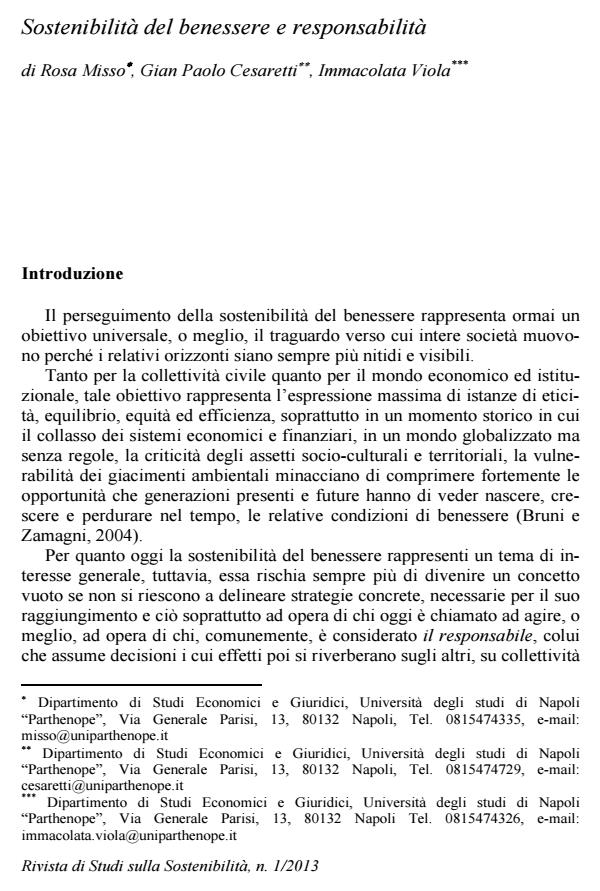Sustainability of well-being and Responsibility
Journal title RIVISTA DI STUDI SULLA SOSTENIBILITA'
Author/s Rosa Misso, Gian Paolo Cesaretti, Immacolata Viola
Publishing Year 2013 Issue 2013/1
Language Italian Pages 16 P. 77-92 File size 199 KB
DOI 10.3280/RISS2013-001006
DOI is like a bar code for intellectual property: to have more infomation
click here
Below, you can see the article first page
If you want to buy this article in PDF format, you can do it, following the instructions to buy download credits

FrancoAngeli is member of Publishers International Linking Association, Inc (PILA), a not-for-profit association which run the CrossRef service enabling links to and from online scholarly content.
The decisions taken with respect to the determinants of sustainability, that is, with respect to growth, new paradigms of well-being and global socio-economic and demographic trends, represent the nerve center of any strategy for growth and maintenance in time and space of economic, social, environmental, territorial and generational well-being. With this in mind, this paper, having identified the principle of responsibility as a genetic factor of sustainability of the well-being highlights how the decisions taken, through a multi-level and multi-trajectories approach, they must necessarily be based on this principle in ensuring in this way, that in time and space the stock of natural, human, economic and social capital will be repeatable.
Keywords: Social shared responsibility, sustainability of well-being, stakeholder’s approach
- The Made in Italy "Beyond the Growth": The Food System Green Oriented Immacolata Viola, in RIVISTA DI STUDI SULLA SOSTENIBILITA' 2/2014 pp.125
DOI: 10.3280/RISS2014-002008
Rosa Misso, Gian Paolo Cesaretti, Immacolata Viola, Sostenibilità del benessere e responsabilità in "RIVISTA DI STUDI SULLA SOSTENIBILITA'" 1/2013, pp 77-92, DOI: 10.3280/RISS2013-001006